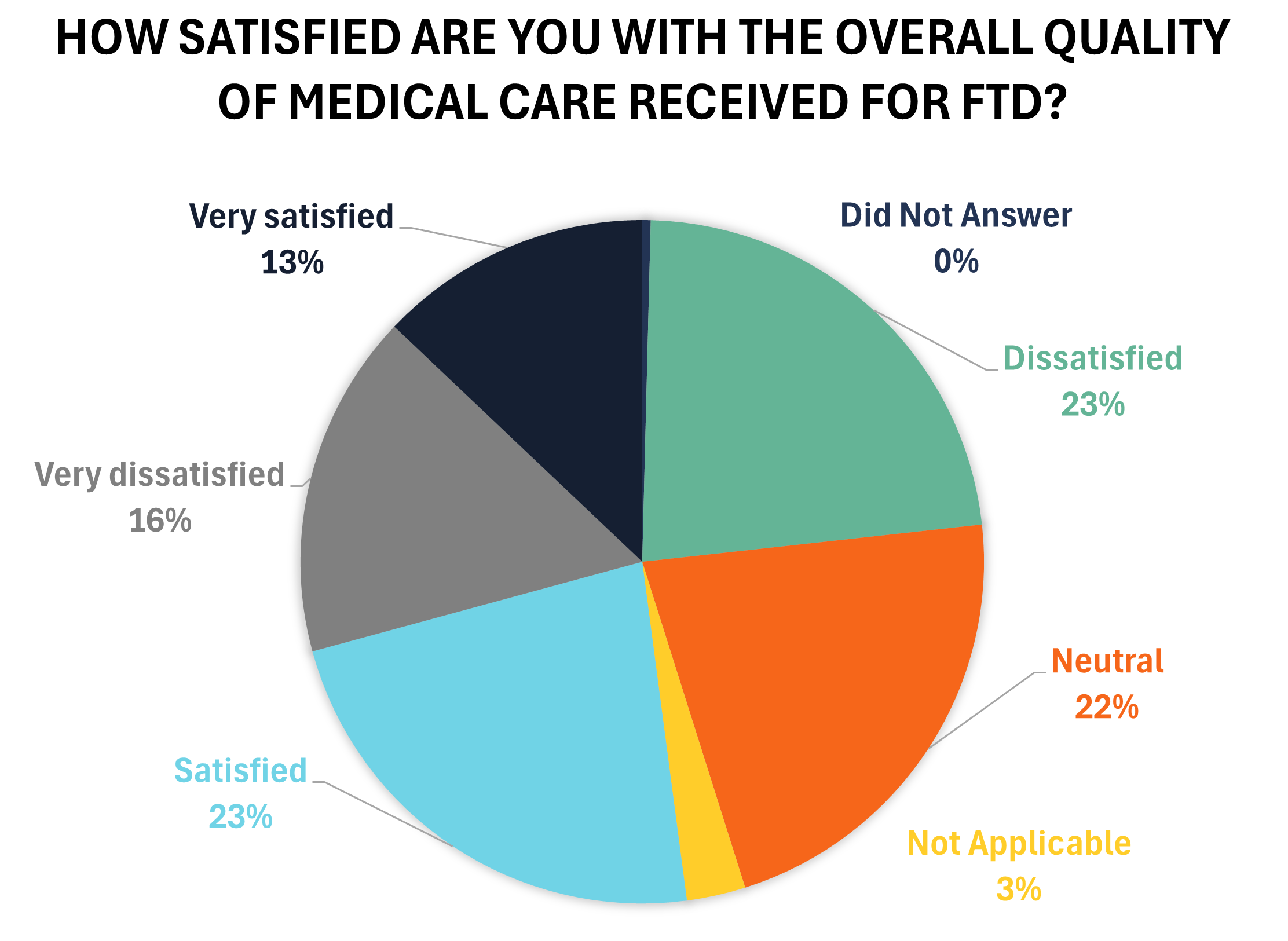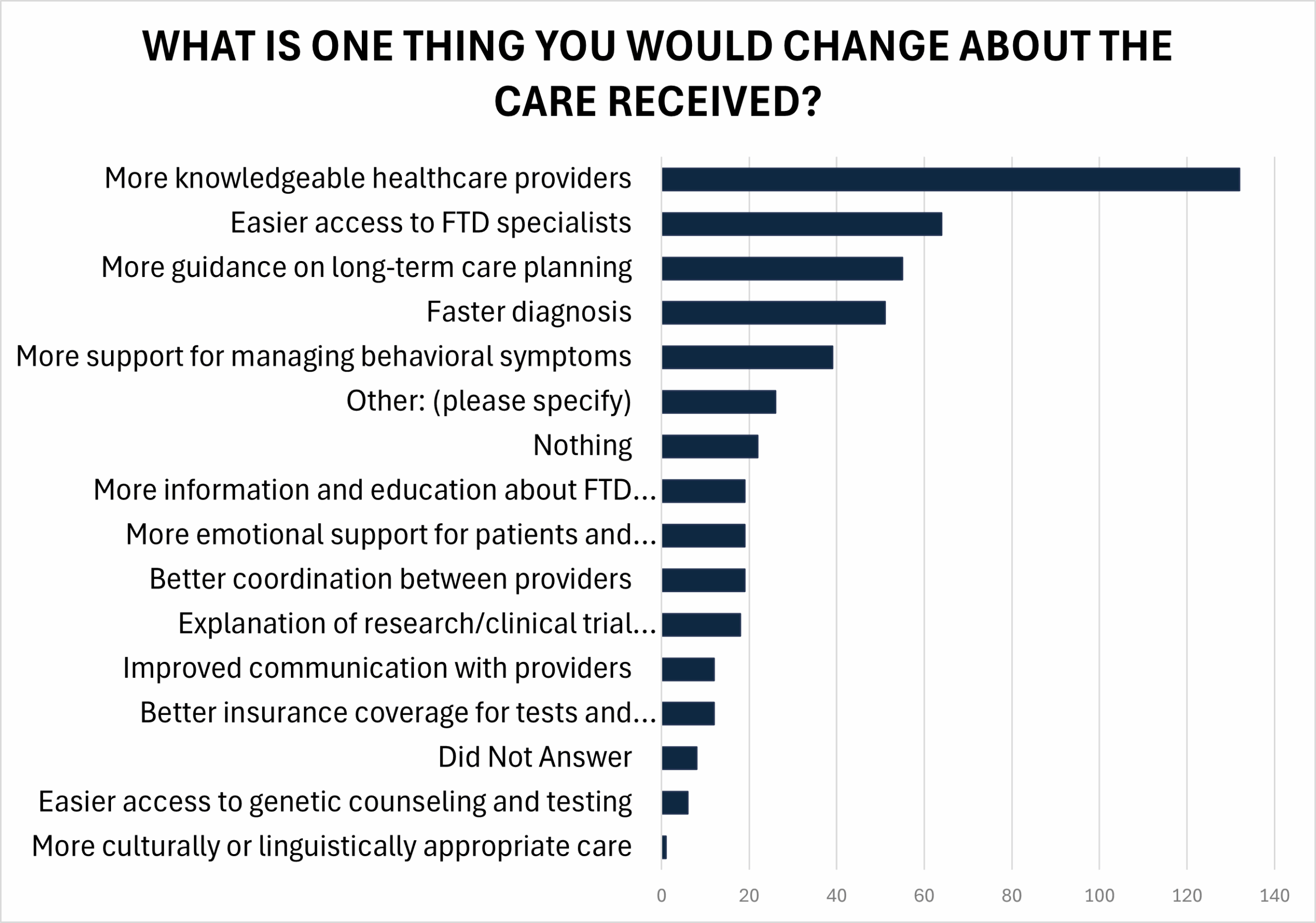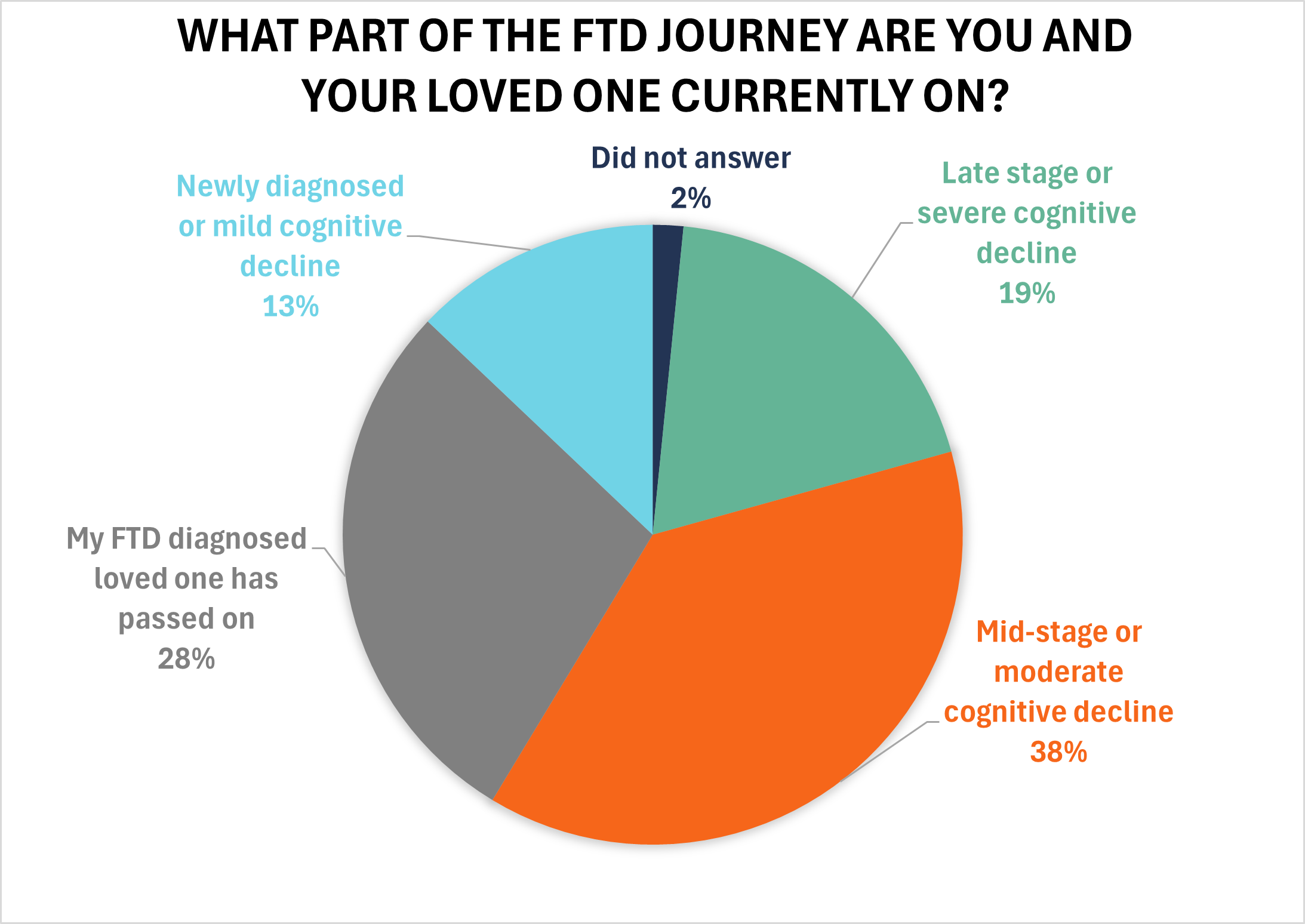PRESS & NEWS
Quick Question June 2025 Result:

673 participants responded to the FTD 503 participants responded to the FTD Disorders Registry’s June Quick Question on how satisfied they are with the overall quality of medical care received for FTD. The results varied greatly.

Of the 503 respondents, an equal number of participants reported being satisfied (115) and dissatisfied (115). While 110 respondents selected a neutral response. 82 respondents reported that they were very dissatisfied with the medical care received, and 65 respondents reported that they were very satisfied with the care received.

When asked to choose one thing they would change about the care they received, the most common response by far was wanting more knowledgeable healthcare providers (132 respondents). The next most frequent answers were easier access to FTD specialists (64), more guidance on long-term care planning (55), and a faster diagnosis (51). Thirty-nine respondents wanted more support for managing behavioral symptoms. Twenty-six selected “other”; while some shared issues unique to their personal care journey, many said they could not choose just one, emphasizing that all of these areas need improvement.
Other responses included: nothing (22), more information and education about FTD (19), more emotional support for patients and caregivers (19), better coordination among providers (19), clearer explanations of research and clinical trial opportunities (18), improved communication with providers (12), better insurance coverage for tests and treatment (12), easier access to genetic counseling and testing (6), and more culturally or linguistically appropriate care (1). Eight respondents did not answer.
Demographics
Spouses answering on behalf of a person diagnosed with an FTD disorder were the largest category of respondents (41%), We also received a large number of responses from people diagnosed with an FTD disorder answering for themselves (22%), biological family members answering on behalf of an FTD diagnosed person(15%), biological family members answering for themselves (7.5%), and spouses answering for themselves (6%).

We received input on this Quick Question from all stages of the FTD journey. The largest group were those in the middle stages of FTD (38%), but we also received input from those whose FTD-diagnosed loved one had already passed away (28%), those in the late-stage of FTD (19%), and those newly diagnosed (13%).
The majority of respondents to this Quick Question were female (68%). 30% were male. 1 respondent identified as non-binary. Five people did not identify their gender. Answers came from around world with respondents reporting in from 19 countries, 43 states and the District of Columbia.
Together we can find a cure for ftd
The FTD Disorders Registry is a powerful tool in the movement to create therapies and find a cure. Together we can help change the course of the disease and put an end to FTD.
Your privacy is important! We promise to protect it. We will not share your contact information.



